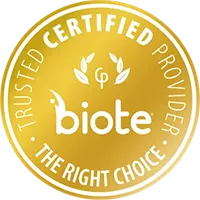Vitamin Infusion Therapy in Hutchinson KS
Enhance Your Healing Potential With IV Nutrition
Boost Your Immune System | Combat Fatigue, Inflammation & Brain Fog | Support Detox | Healthier Hair, Skin & Nails
The utilization of IV vitamin therapy has been used for numerous conditions in history since the 1930s. The practice has evolved incredibly. Breakthroughs in this amazing biochemical science have gifted us with formulas that help benefit individual patients' specific conditions. This article aims to give you a better understanding of Vitamin Therapy in Hutchinson KS and to answer any question you may have.
Why Vitamin Infusion Therapy in Hutchinson KS?
Proper nutrition provides enormous benefits. However, most of us don’t eat the right foods, nor do we absorb the number of nutrients we need when we do eat properly! Let’s say someone takes an oral supplement. Studies show that most individuals only absorb 10% to 15% of that vitamin. Why can’t we take more? Only low doses can be taken orally without issues of upset stomach or gastrointestinal problems.
When we use IV nutritional therapy, we’re able to supply megadoses. Research shows absorption levels are above 90% of the vitamin. We can give the body the doses it needs to change the physiology of each individual we treat.
As with any treatment we offer in our clinic, this service is tailor-made to best fit each individual. We test each patient’s blood work prior to administering vitamin therapy. This allows us to achieve the best results possible for each individual.
How Often Do I need Infusion Therapy?
In order to achieve an individual's optimal health, we must treat the individual! This means everyone’s plan will be different based on our findings. Some patients require intensive treatment, coming in 1 to 2 times per week for several weeks. Other patients simply need to maintain their nutrition and only need a monthly IV treatment.
What Are the Benefits?
- Nutrient absorption
- Increased energy levels
- Rehydration
- Combat Inflammation
- Preventative therapy
- Improved immune system
- Defense against daily stress and toxins
IV Nutrient Benefits
IV Cocktails & Add Ons
$160
Myers Cocktail
Vitamin C
B Complex
Magnesium
$145
Immune Boost
Vitamin C
Zinc
Glutathione IV Push
Lysine IV Push
Add On for $15
$135
Energizer
B Complex
B12
$145
Relaxation
Magnesium
B6
Glutathione IV Push
Add ons
Vitamin D Injections | $20
Glutathione | $20
B12 Injection | $15
Biotin | $15
Taurine | $15
Zinc | $15
Frequency & Group Discounts Available
Monday
7:00am - 11:00am
2:00pm - 6:00pm
Tuesday
7:00am - 11:00am
2:00pm - 6:00pm
Wednesday
7:00am - 11:00am
2:00pm - 6:00pm
Thursday
7:00am - 11:00am
2:00pm - 6:00pm
Friday
Closed
Saturday
Closed
Schroeder Family Wellness Clinic
421 E 30th Ave
Hutchinson, KS 67502



